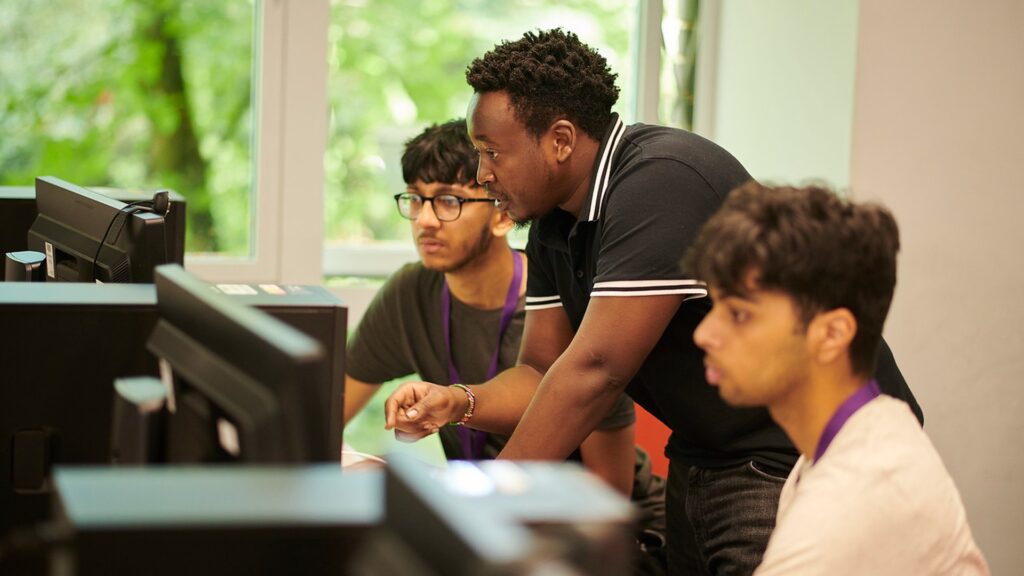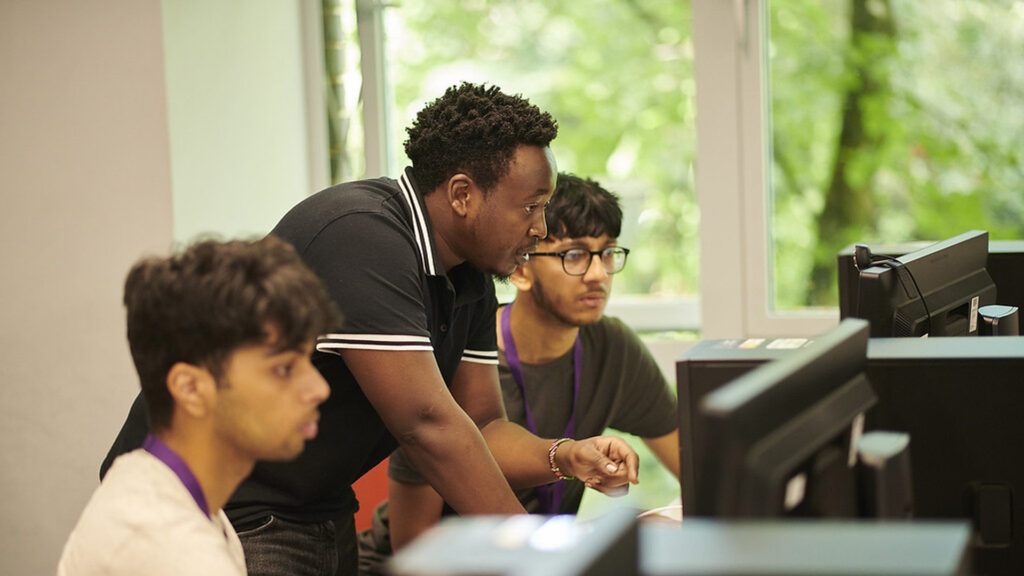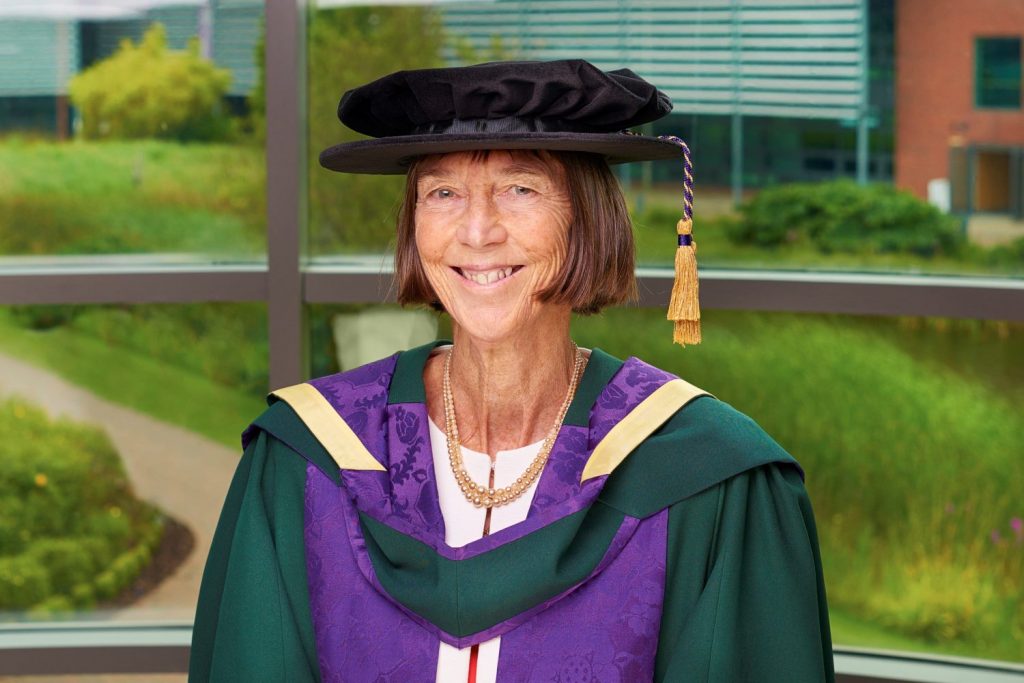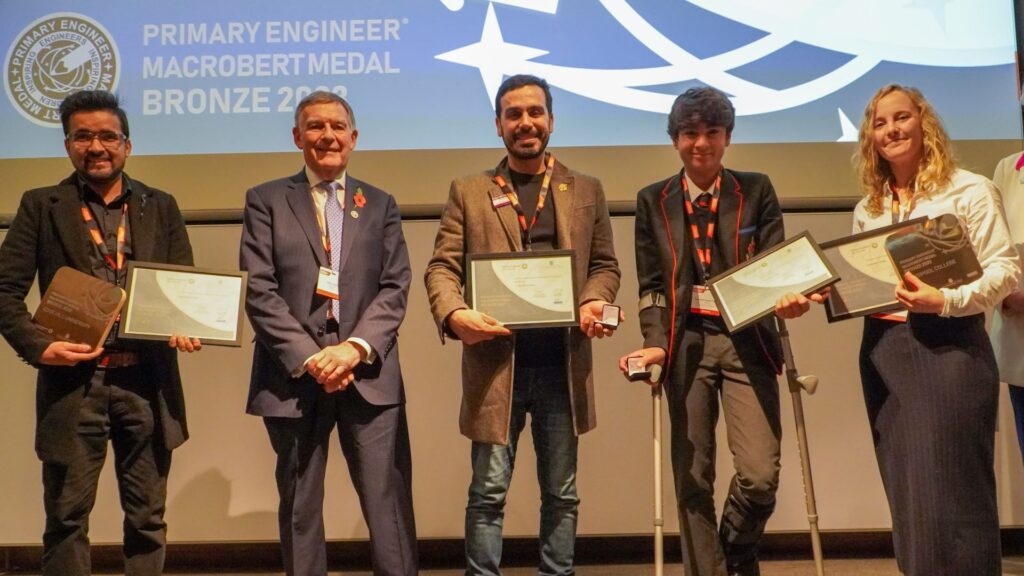Biomedical Engineering BEng (Hons)
UCAS code: H160
Join an interdisciplinary engineering degree that draws on the medical and healthcare expertise that Edge Hill has to offer. Developing your skills and knowledge through practical applications, you’ll be ready to begin your career in a rapidly growing industry.
Overview
| Course length: | 3 years full-time |
|---|---|
| Start dates: | September 2024 September 2025 |
| Location: | Edge Hill University |
| Subject(s): | Engineering and Physics |
| Faculty: | Arts and Sciences |
| Department: | Engineering |
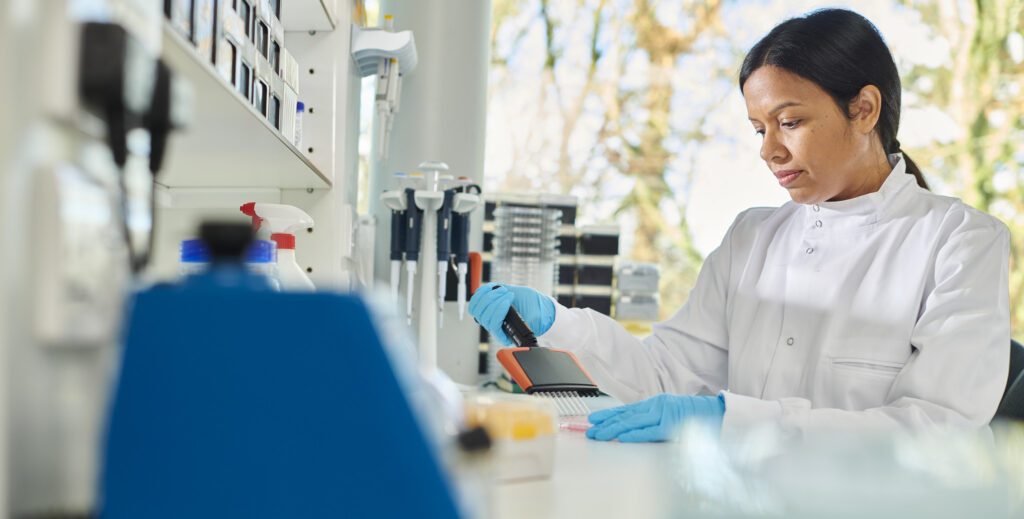
Biomedical engineering is an exciting area of growing demand and so we’ve designed our BEng honours degree to meet the academic requirements to achieve Incorporate Engineer (IEng) status (accreditation currently pending).
Studying with us, you’ll learn about cell biology, medical robotics and image processing. Plus, we’ll help you develop the skills you’ll need to succeed as a biomechanical engineering professional, helping you to build your employability and become work-ready by the end of the course.
You’ll graduate with an in-depth understanding of the different facets of biomedical engineering, and with an engineering qualification you’ll be in high demand from graduate employers.
Course features
-
Sandwich year option available
-
Studying abroad option available
-
International students can apply
What you'll study
In Year 1 we’ll cover the foundations that will ensure your success throughout the degree. We’ll provide an introduction to biomedical science, including medical ethics and health and safety regulations, as well as computer programming, materials engineering and computer aided design. We’ll also cover introductory mathematics in an engineering context, and fundamentals of electrical and electronic engineering. Plus, you’ll begin to develop soft skills needed by a professional engineer.
Year 2 builds on the topics you will have studied in Year 1. You will further develop the professional skills needed of an engineer as well as advanced mathematical concepts. You’ll study biomechanics and biomedical instrumentation, together with the processing of signals and the building blocks of robotics and artificial intelligence (AI).
In Year 3, you’ll study advanced topics addressing the use of robotics in medical applications, and the digital processing of medical images. We’ll also teach you the methods you’ll need to succeed in researching and developing an engineering project, as well as the importance of commercial awareness within engineering. Finally, you’ll bring all of your learning together in a major individual project that will showcase your skills and knowledge.
Where your course includes optional modules, these are to provide an element of choice within the course curriculum. The availability of optional modules may vary from year to year and will be subject to minimum student numbers being achieved. This means that the availability of specific optional modules cannot be guaranteed. Optional module selection may also be affected by timetabling requirements. Some restrictions on optional module choice or combinations of optional modules may apply.
How you'll study
We design our teaching methods in consultation with some of the leading employers in the region. You’ll be taught in our engineering and computing laboratories for many of your classes, and we focus on your activities as a way of learning.
Our lessons are highly interactive allowing you to you’ll look at practical applications of concepts and study real life cases. You will work with your peers in workshops, seminars, group tutorials and practical exercises, enabling you to expand the essential people skills to complement your technical ability.
On a full-time basis, teaching will typically take place over two to three days per week.
How you'll be assessed
The methods of assessment vary from module to module and may consist of coursework, portfolios and exams. We want you to develop the ability to work effectively both independently and as part of a team, therefore assessment includes both of these forms, though the emphasis is strongly on individual work.
Who will be teaching you
You will be taught by staff who are passionate about student learning and development, while also benefitting from guest lectures delivered by industry experts. The programme team are specialists in engineering and computing and are active researchers. Their research feeds directly into the teaching of the programme, ensuring that you will learn about the latest developments within subjects while gaining the skills and knowledge required to meet industrial needs.
Academic staff are also regular contributors to conferences and journals, frequently engaging with the wider business and academic environment in disseminating knowledge and delivering impact.
Entry criteria
Entry requirements
Typical offer 112-120 UCAS tariff points achieved through A levels, BTEC, International Baccalaureate, Access Diploma, T Level, or Irish Leaving Certificate. This must include A Level Mathematics at Grade C or above or equivalent.
You should also have GCSE English Language at Grade C or Grade 4 or above, or equivalent.
For students studying BTEC a BTEC Extended Diploma in Engineering is preferred. Typical offers will be DMM, with grade Merit or above in one of the following units:
- to solve engineering problems
- engineering mathematics
Example offers
| Qualification | Requirement |
|---|---|
| A Level | BBC-BBB. |
| BTEC Extended Diploma (or combination of BTEC QCF qualifications) | Distinction, Merit, Merit (DMM). |
| T Level | Overall grade of Merit. |
| International Baccalaureate (IB) | We are happy to accept IB qualifications which achieve the required number of UCAS Tariff points. Subject-specific requirements at Higher Level (HL) Grade 5 may apply. |
| Access to Higher Education Diploma | 45 credits at Level 3, for example 15 credits at Distinction and 30 credits at Merit or 24 credits at Distinction and 21 credits at Merit. The required total can be attained from various credit combinations. |
Please note, the above examples may differ from actual offers made. A combination of A Level and BTEC awards may also be accepted.
If you have a minimum of two A Levels (or equivalent), there is no maximum number of qualifications that we will accept UCAS points from. This includes additional qualifications such as Extended Project Qualification (EPQ), AS Levels that haven't been continued to A Level, and General Studies AS or A Level awards.
English language requirements
International students require IELTS 6.0, with a score no lower than 5.5 in each individual component, or an equivalent English language qualification.
If your current level of English is half a band, one band, or one-and-a-half bands lower, either overall or in one or two elements, you may want to consider our Pre-Sessional English course.
How to apply
Apply full-time
Read our guide to applying through UCAS to find out more about the application process.
Apply part-time
Complete our online application form if you want to study this course on a part-time basis.
International
Please see our international student pages for further information about how to apply as a prospective international student.
Should you accept an offer of a place to study with us and formally enrol as a student, you will be subject to the provisions of the regulations, rules, codes, conditions and policies which apply to our students. These are available at www.edgehill.ac.uk/studentterms.
If you join a full time undergraduate degree at Edge Hill University, we will guarantee you the offer of a room in our halls of residence for the first year of your course.
Discover our accommodation
Facilities
The Department of Engineering is based in the state-of-the-art £13m Tech Hub. This purpose-built development offers highly contemporary suites of outstanding facilities for Engineering and Physics, as well as Computing and IT students. Our modern engineering teaching laboratories are equipped with a range of industry-standard, test and measurement equipment, and leading analytical software. 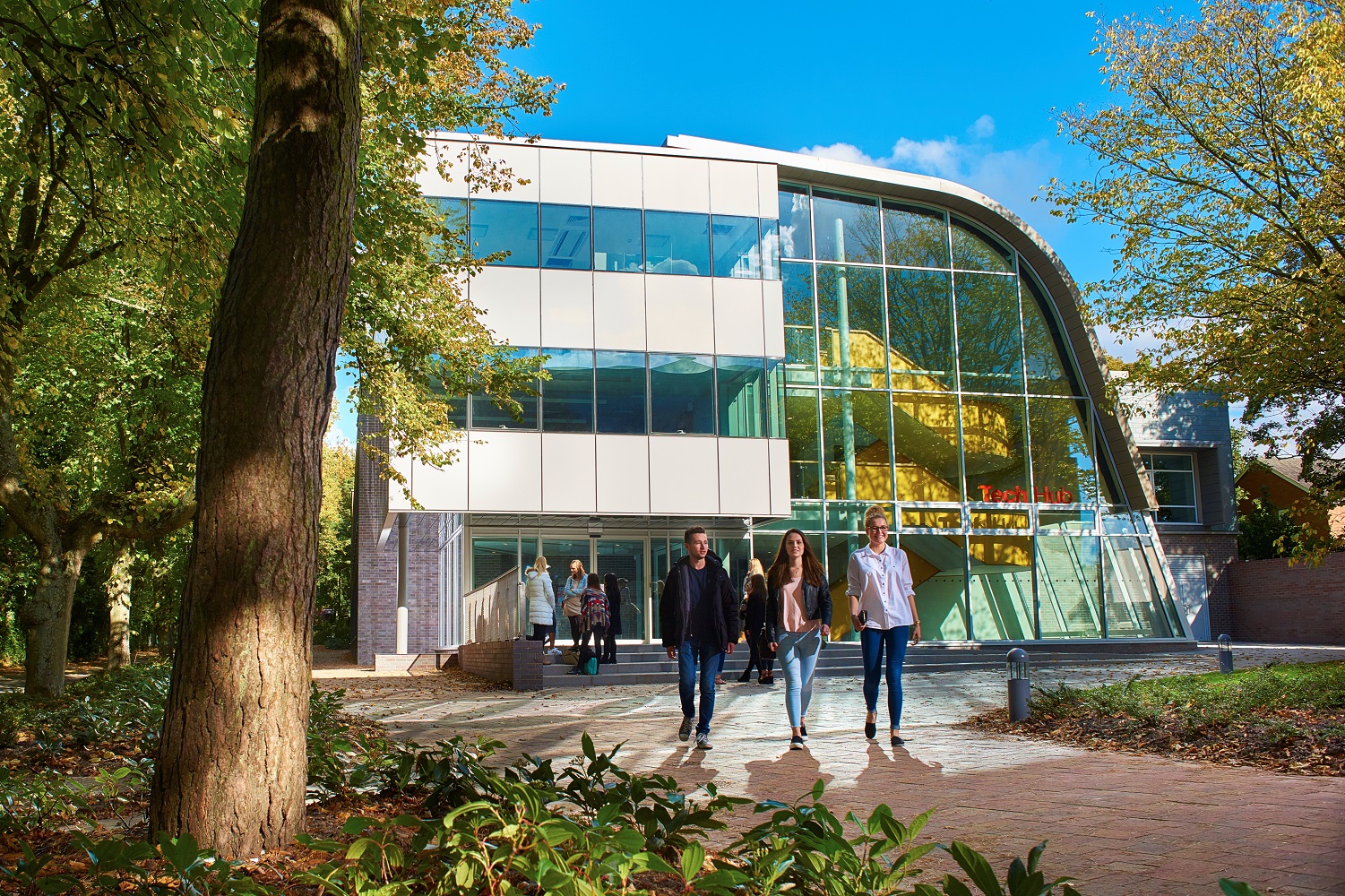
There are dedicated specialist laboratories for materials engineering, electrical motors, and electronic engineering, in addition to an abundance of computer facilities and a large, horseshoe-shaped Harvard style lecture theatre.
Where you'll study
Tech Hub
Learning resources
Learning resources include oscilloscopes, signal generators, digital multimeters, Arduino and Raspberry Pi microprocessors, a tensile tester machine, electronics training kits, single and 3-phase transformers, a 3-D printer, and robotic arm kits, plus MATLAB and SolidWorks software platforms.
Teaching and learning are supported by the web-based platform Blackboard Ultra Virtual learning Environment. The library is well-stocked with recommended print books and e-books and subscribes to high-impact technical e-Journals. The university subscribes to LinkedIn Learning, which provides free and unlimited access to thousands of high-quality online courses and video tutorials written by industry experts.
Assistive and accessible technologies include Read&Write text to speech software, Caption Ed to facilitate ease of note taking, and a mind mapping tool. The university provides specific workshops on academic skills for students who have specific learning difficulty or disability.
Finance
Tuition fees
UK Full-Time
£9,250
a year
UK Part-Time
£77 per credit
for 60 credits
International
£16,500
a year
EU/EEA and Swiss students who have settled or pre-settled status under the EU Settlement Scheme, as well as Irish nationals, may be eligible for the UK tuition fee rate.
Financial support
Subject to eligibility, UK students joining this course can apply for a Tuition Fee Loan from the Government to cover the full cost of tuition fees. UK students enrolling on the course may also be eligible to apply for additional funding to help with living costs.
Please view the relevant Money Matters guide for comprehensive information about the financial support available to eligible UK students.
EU/EEA and Swiss students who have settled or pre-settled status under the EU Settlement Scheme may be eligible to apply for financial support. Irish nationals can ordinarily apply to Student Universal Support Ireland (SUSI). If you are an EU student who does not have settled or pre-settled status, or are an international student from a non-EU country, please see our international student finance pages.
Your future career
As a biomedical engineering graduate, you could work in areas including biomedical engineering, clinical engineering, healthcare, manufacturing, product design, and project management. There are many exciting roles you can pursue such as systems designer, hardware and software developer, and technical consultant.
The type of workplaces you might work in include engineering consultancies and design practices, government agencies, healthcare organisations and research organisations.
Course changes
Every effort has been made to ensure the accuracy of this information, however our courses are subject to ongoing review and development. Changing circumstances may necessitate alteration to, or the cancellation of, courses.
Changes may be necessary to comply with the requirements of professional bodies, revisions to subject benchmarks statements, to keep courses updated and contemporary, or as a result of student feedback. We reserve the right to make variations if we consider such action to be necessary or in the best interests of students.

